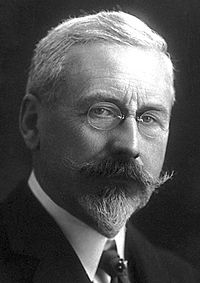Charles Édouard Guillaume Scientist
Charles Édouard Guillaume (15 February 1861, Fleurier, Switzerland – 13 May 1938, Sèvres, France) was a Swiss physicist who received the Nobel Prize in Physics in 1920 in recognition of the service he had rendered to precision measurements in physics by his discovery of anomalies in nickel steel alloys.Guillaume is known for his discovery of nickel-steel alloys he named invar and elinvar. Invar has a near-zero coefficient of thermal expansion, making it useful in constructing precision instruments whose dimensions need to remain constant in spite of varying temperature. Elinvar has a near-zero thermal coefficient of the modulus of elasticity, making it useful in constructing instruments with springs that need to be unaffected by varying temperature, such as the marine chronometer. Elinvar is also non-magnetic, which is a secondary useful property for antimagnetic watches.As the son of a Swiss horologist Guillaume took an interest in marine chronometers. For use as the compensation balance he developed a slight variation of the invar alloy which had a negative quadratic coefficient of expansion. The purpose of doing this was to eliminate the "middle temperature" error of the balance wheel.Guillaume was head of the International Bureau of Weights and Measures. He worked with Kristian Birkeland, serving at the Observatoire de Paris—Section de Meudon. He conducted several experiments with thermostatic measurements at the observatory. He was the first to determine accurately the temperature of space.Guillaume was married in 1888 to A.M. Taufflieb, with whom he had three children.
